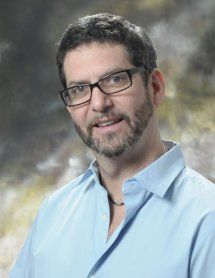Paul Bonneau
Paul Gregory Bonneau was born 13 September 1962 in Chicago (USA). He studied with Larry Austin and Phil Winsor at the University of North Texas and was invited to study at the University of Surrey, in England. He received Bachelor, Master and Doctor Music degrees in composition from the University of North Texas.
Paul Bonneau began his musical career conducting in the late 1980's with the production of his original works for concert hall and modern dance. In 1996 he founded and was the music director of the Flower Mound Symphony Orchestra. In this position he had supervised the Flower Mound Symphony Orchestra's growth to include the symphony orchestra and the founding of its two educational orchestras - the FM Preparatory Orchestra and the FM Progressive Orchestra. Both orchestras are unique in that they include older children, teens and adults.
As well as his work as music director Paul Bonneau played bass guitar in several combos, including a jazz trio, Prescription Jazz, and also in the Reign Band at Trietsch Methodist Church. He also gave private piano lessons and taught at the North Lake College.
Among the compositions by Paul Bonneau are commissions by the Equinox Symphony Orchestra, the Greater Rochester Concert Outreach and the Susquehanna Symphony Orchestra. He composed many works for orchestra: Motet for orchestra, a Concertino for orchestra, a Violin concerto, Sympathy for Dying Friend for string orchestra, and a Latin Mass for choir, orchestra and mezzo-soprano. There are also works for smaller ensembles such as Two fanfares for brass quintet, Global Warming - a Rant for unaccompanied violin, and Fantasia on Kyrie Eleison for piano.
Paul Gregory Bonneau died on 31 March 2013 in Denton County (USA).
Paul Gregory Bonneau should not be confused with the French composer Paul Bonneau (1918-1995).
Violin concerto
The Violin concerto "American Dream: I want to rule the World" was composed in 2005 and premiered in March 2006 with Lewis Wong (violin), the Flower Mound Symphony Orchestra under the baton of Paul G. Bonneau.
The composer gives the following notes to the concerto and its provoking title:
"American Dream: I want to rule the World is composed in three sections, each more dissonant then the preceding one. The solo violinist plays a proactive role throughout, with the orchestra "reacting"; to the impetus of the soloist. Each section is brought to a close as the orchestra, seemingly impatient with the views of the soloist, takes over the melodic material and disavows itself of the soloist. The final section is composed in a canon. Canon is literally defined as a law or rule. In music a canon is defined as one voice leading with a musical phrase or idea, and subsequent voices repeating literally what the first voice articulates, been prohibited "by law"; to deviate from the lead voice. The popular children's song "Row, Row, Row Your Boat" is perhaps the simplest example of a well-known musical canon. My canon in this third section begins in concordance with the rules of a musical canon (in this case a canon at the interval of a major second), but eventually goes terribly awry. The musical construction is embodied in, and is a reflection of, the title of the work.
The title of the work and what it means are meant to express views that are entirely my own. But as one may wonder as to what American Dream means, here are a few words: I love the United States of America. I am grateful to have been born a citizen of this country. Our U.S. Constitution is arguably the greatest document outlining a system of government ever written and enacted. And it is my opinion that we, as a nation, are in troubling times. What was once a noble dream, the American Dream, which has meant that anyone in the United States need only work hard with honesty and integrity to achieve a fulfilling life of freedom and prosperity; has metastasized to mean American Dream: I want to rule the World.
I am but an artist, helpless to enact major change. I have one resource: my art, and through it, I will not remain silent."

